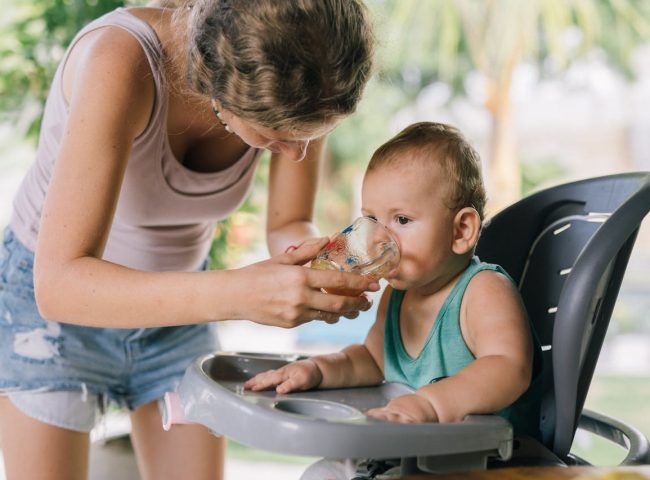Am I pregnant? Signs and Symptoms to help you understand
The journey to motherhood is a profound and transformative experience, one that often begins with a whisper of uncertainty. The question that goes in the minds of many women at some point in their lives is a simple yet profound one: “Am I pregnant?” It’s a question with many emotions, hope, anxiety, excitement, and perhaps even a touch of fear. While the only definitive way to confirm a pregnancy is through a medical test, the human body has a way of dropping hints and leaving subtle breadcrumbs, the signs and symptoms that can offer some peace of mind.
In the early stages of this journey, your body undergoes a series of intricate changes, and some of these changes can be recognized as early signs and symptoms. These subtle signs, though not foolproof, can provide valuable clues, guiding you towards an answer.
Pregnancy is a deeply personal and unique experience, and the signs of it can vary from woman to woman. Whether you are eagerly hoping for a positive result or feeling slightly apprehensive about the possibility, it’s important to remember that you are not alone on this path. This article is here to shed light on some common indicators that might help you understand the early stages of this journey and answer the question that lingers in your heart: “Am I pregnant?”

Source: www.moretimemoms.com
Here are the signs and symptoms you might experience:
You will miss your period: A missed period is usually the very first sign that makes everyone consider the possibility of pregnancy. This happens because when you become pregnant, your body stops releasing eggs and your uterine lining doesn’t shed, resulting in a missed menstrual period. However, it’s important to note that irregular periods can also be caused by various factors other than pregnancy, such as stress, hormonal changes, or certain medical conditions.
You might experience changes in your breasts: Early pregnancy hormones, primarily estrogen and progesterone, can lead to visible changes. They may become tender, sore, or swollen. The darkening of the areolas (the area around the nipples) and an increase in breast size can also happen.
You might experience Fatigue: Pregnancy hormones, especially the hormone progesterone, can make you feel incredibly tired during the first trimester. Your body is working hard to support the developing embryo, which can leave you feeling exhausted, even if you’ve had a full night’s sleep.
Might frequently want to pee: An increased need to urinate frequently is a common pregnancy symptom. This happens because the growing uterus puts pressure on the bladder, causing you to empty it more often. It’s particularly noticeable during the first and third trimesters.
Morning Sickness: Nausea and vomiting, often referred to as morning sickness, are prominent signs of pregnancy. This can actually happen during any time of the day or night regardless of its name. The exact cause of morning sickness is not entirely understood, but it is thought to be related to hormonal changes and an increased sensitivity to odors.
You might dislike certain foods but also experience strong Cravings: Hormonal fluctuations can lead to sudden changes in your food preferences. You may develop aversions to certain foods or smells that never bothered you earlier. On the other hand, you might also experience unusual cravings for specific foods.
Strong Sense of Smell: Pregnancy hormones can heighten your sense of smell, making you more sensitive to scents. This increased sensitivity to scents can lead to nausea and even trigger food aversions.
Mood Swings: The changes in your hormones during pregnancy can impact your mood. You may find yourself experiencing mood swings, feeling more emotional, or even becoming more irritable than usual. These emotional fluctuations are entirely normal.
Changes in Body Temperature: Some women use basal body temperature charting to track their menstrual cycles. After ovulation, a sustained elevated basal body temperature can indicate pregnancy. This temperature increase occurs because progesterone levels rise after ovulation.
You might experience Implantation Bleeding: Implantation bleeding is a relatively uncommon sign of pregnancy. It happens when the fertilized egg implants itself into the uterine lining, leading to minor bleeding or spotting. This occurrence usually happens with the expected menstrual period and can sometimes be confused with a light period.
Factors to consider:
- The signs and symptoms mentioned earlier are helpful indicators, but they are not definitive proof of pregnancy. To be certain, it’s important to confirm your pregnancy through a reliable method. Home pregnancy tests are readily available at most pharmacies and are highly accurate when used correctly. These tests detect the presence of human chorionic gonadotropin (hCG), a hormone produced during pregnancy. Alternatively, you can schedule a visit to your healthcare provider for a blood test, which can provide even earlier confirmation.
- Regardless of the results of your home pregnancy test, it’s a good idea to consult with a doctor, such as an obstetrician or a family doctor. They can provide guidance, answer your questions, and offer prenatal care if you are indeed pregnant. Early prenatal care is super important for the health of both you and your baby, as it helps monitor the progress of your pregnancy and identifies any potential issues.
Check out the link to read about what you can do if you find out that you’re pregnant: https://www.healthline.com/health/pregnancy/11-things-to-do-when-you-find-out-youre-pregnant#take-prenatal-vitamins
- The journey of discovering and confirming pregnancy can be emotionally charged. Whether you’re hoping for a positive result or not, it’s normal to experience a range of emotions. You may feel joy, anxiety, fear, or even a mix of all these feelings. It’s important to seek emotional support from loved ones or consider talking to a therapist or counselor if you find that your emotions become overwhelming. Pregnancy is a significant life event, and it’s perfectly okay to seek help and guidance when needed.
- It’s important to keep in mind that every pregnancy is unique, and your experience may differ from those of others. Some women may have a relatively symptom-free pregnancy, while others may experience more pronounced discomforts. Each person’s body and journey are different, so try not to compare yourself to others. Focus on taking care of yourself and following the guidance of your doctor.
- Regardless of the outcome of your pregnancy test, it’s important to approach this journey with anticipation and excitement. Pregnancy is a time of transformation and growth, both for you and your future child. It’s a period filled with opportunities to learn, prepare, and plan for the new addition to your family. Cherish the experience and the emotions that come with it, and remember that you have a support system of healthcare professionals and loved ones to guide you along the way.







